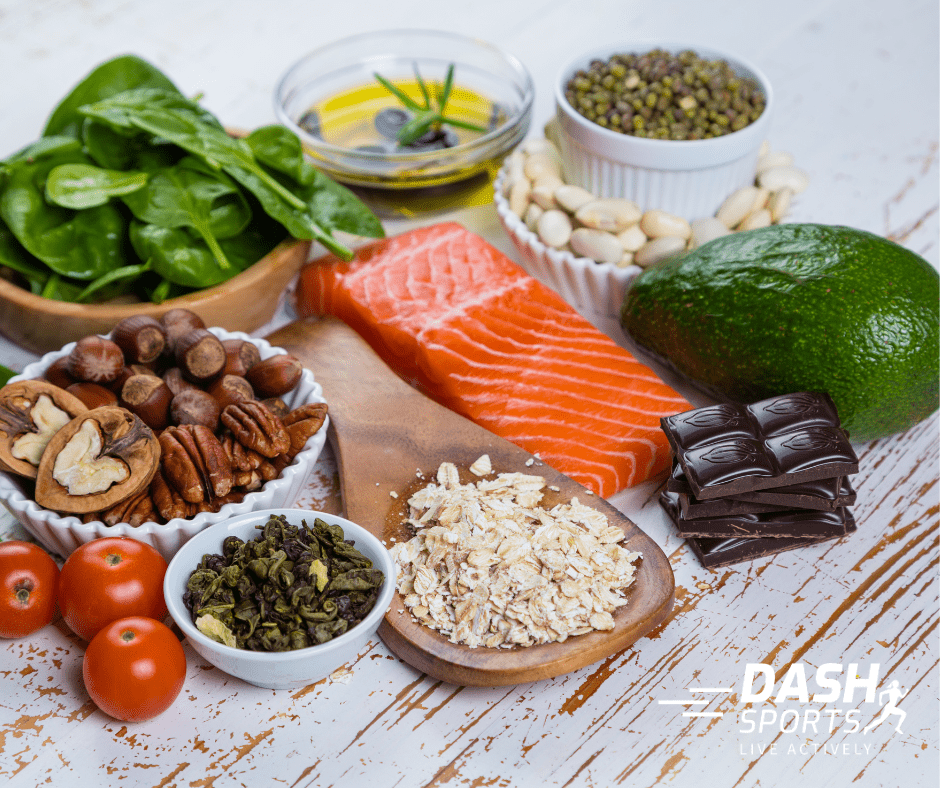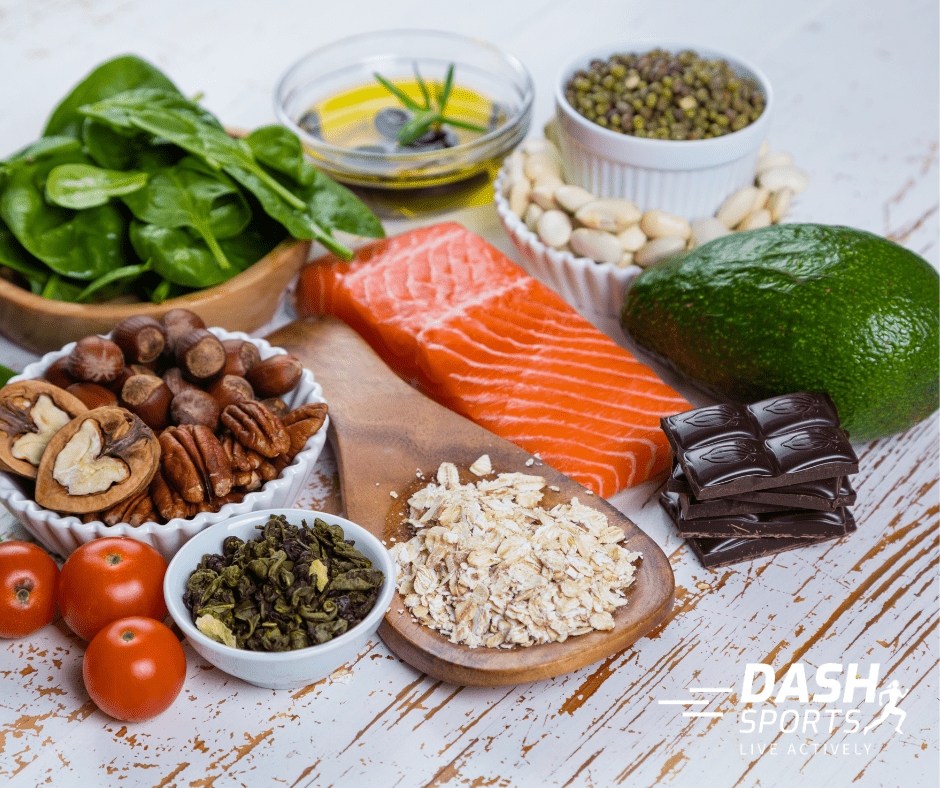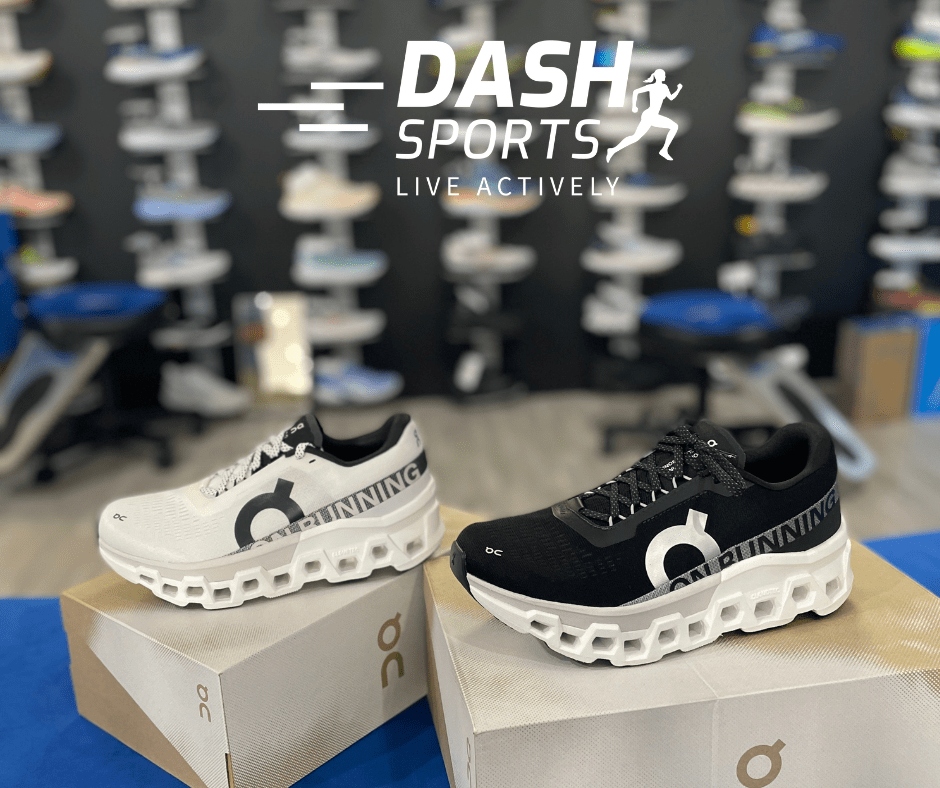Fueling your body with the right nutrients before a 5K run is crucial for optimal performance. The food you consume can have a direct impact on your energy levels, endurance, and overall experience during the race.
It’s important to find a balance that works for your body to provide the necessary energy without causing discomfort or sluggishness.
Pre-race eating isn’t just about the meal immediately before your run; it also involves understanding how to time your nutrition in the days leading up to the event.
- Explore Our Store Today
Experience the unique Dash Sports approach with our tailored shoe fitting service.
A strategy involving complex carbohydrates, moderate protein, and low fat can sustain energy levels.
Additionally, hydration plays a key role in preparing for the 5K, and understanding how to properly integrate fluids into your pre-race routine is essential.
Understanding the 5K Challenge
Preparing for a 5K requires a strategic approach to nutrition to ensure your body has the energy and resources needed for optimal performance.
The right balance of macronutrients is critical to fuel your training and race day.
The Importance of Nutrition
Your diet plays a crucial role in your ability to run a successful 5K. A balanced diet provides the nutrients your muscles need for endurance and recovery.
Prioritize nutrient-dense foods that support a steady supply of energy.
The Role of Carbohydrates
Carbohydrates are your body’s main source of energy. Consuming carbs leads to the storage of glycogen in your muscles, which is essential for sustained energy during your run.
Consider foods with a low glycemic index to maintain stable blood sugar levels.
Carbohydrate Guidelines for Runners
- 48-72 hours before a 5K: Focus on complex carbohydrates (e.g., whole grains, legumes, vegetables).
- Pre-race meal: Include a moderate portion of carbs (e.g., banana, oatmeal).
Proteins and Fats in Endurance Running
While carbs are critical, don’t overlook the importance of protein and fats.
Proteins help repair and build muscle tissue, and fats are a valuable secondary source of energy.
Protein and Fat Intake Recommendations
- Protein: Include a moderate amount in your diet to support muscle repair (e.g., lean meats, dairy, legumes).
- Fats: Opt for healthy fats for sustained energy (e.g., avocados, nuts, olive oil).
Pre-Race Eating Strategy
Your performance in a 5k race can be significantly influenced by what you eat. Proper nutrition ensures you have enough energy to maintain your pace without feeling sluggish or suffering from digestive distress.
Carb Loading Explained
Carb loading boosts your muscle glycogen stores, which are your muscles’ primary energy source during a 5k race.
Begin to increase your intake of carbohydrates such as pasta, whole grains, and brown rice two to three days before the race.
Aim for about 3-5 grams of carbs per pound of body weight.
- Pasta: A classic carb-loading meal with high carbohydrate content.
- Whole Grains: Offer sustained energy release.
- Brown Rice: A great source of long-lasting complex carbohydrates.
The Evening Before The Race
Your dinner the night before should be high in complex carbohydrates and moderate in protein. A nutritious meal could include:
- Grains: Quinoa, barley, or brown rice.
- Protein: Grilled chicken or tofu.
- Vegetables: Steamed broccoli or spinach.
Example Dinner:
- 2 cups of cooked brown rice
- 1 grilled chicken breast
- 1 cup of steamed vegetables
Race Day Morning Nutrition
On the morning of the race, eat a light breakfast about 2-3 hours before the start. This meal should be rich in carbs and low in fat and fiber to prevent gastrointestinal issues.
- Carbohydrates: Toast with jam, a bagel, or oatmeal.
- Hydration: Drink water or an electrolyte drink to stay hydrated.
Example Breakfast:
- 1 medium bagel with 2 tablespoons of jam
- 1 banana
- 8 oz of water or an electrolyte drink
What to Include in Your Pre-5K Meal
Your pre-5K meal should be specifically tailored to provide you with sustained energy without causing stomach discomfort. To achieve this, focus on low-fiber carbohydrates, lean proteins, and proper hydration.
Focusing on Low-Fiber Carbs
Low-fiber carbs digest more quickly, giving you immediate energy. Consider these options:
- Oatmeal: A bowl of oatmeal is a good source of whole, unprocessed carbs and is gentle on the stomach.
- Bagel: Preferably a plain or whole wheat bagel topped with a thin layer of peanut butter or jam to add flavor and a bit of protein.
- Smoothie: Blend berries and a banana with a scoop of peanut butter or honey for a quick, drinkable snack.
Incorporating Lean Proteins
Lean proteins provide essential amino acids that help with muscle repair and recovery:
- Turkey Sandwich: Made with whole-grain bread, lean turkey slices, and a slice of cheese.
- Nuts: A small handful of almonds or cashews.
- Fish: Particularly light and easy-to-digest options like grilled or baked cod or tilapia.
Hydration and Fluids
Stay hydrated with fluids that will help you maintain optimal performance:
- Water: Aim to drink about 500 ml (about 17 ounces) of water 2-3 hours before the race.
- Coffee or Tea: If you usually consume caffeine, a small cup can help with alertness, but don’t overdo it as it may lead to dehydration.
- Sports Drink: Choose one with electrolytes to help replenish sodium lost through sweat, especially if the weather is warm.
Foods to Avoid Before Running a 5K
Before you lace up for your 5K run, it’s critical to avoid certain foods that can cause stomach cramps, bloating, or frequent bathroom trips. Choose your pre-race meals carefully to prevent feeling sluggish or nauseous.
High-Fat and High-Fiber Foods
- High-Fat Foods: Consuming foods rich in fats can slow down digestion, making you feel heavy or lethargic.
- High-Fiber Foods: Although fiber is vital in a balanced diet, too much pre-run can cause intestinal distress.
Sugary and Processed Foods
- Sugary Foods: These can spike your blood sugar levels leading to an energy crash mid-run.
- Processed Foods: They often contain hidden fats and sugars that can unsettle your stomach during a run.
Timing Your Pre-Race Nutrition

Properly timing your nutrition intake is crucial for optimizing energy levels and avoiding discomfort during a 5k race.
This includes eating the right balance of carbohydrates, proteins, and fats at the right times as well as managing caffeine, hydration, and bathroom needs.
The Day Before
The day before your 5k, focus on consuming complex carbohydrates to build up energy stores.
Meals should be rich in whole grains, providing the fuel your body needs without causing undue hunger.
It’s also important to hydrate well, taking in fluids throughout the day to prepare for the next day’s exertion.
- Recommended foods: Pasta, rice, potatoes, whole grains
- Hydration tip: Aim for clear or pale yellow urine as a sign of proper hydration
Pre-Race Meal Timing
Your pre-race meal should be consumed about 3-4 hours before the start of the race to allow ample time for digestion and minimize the risk of gastrointestinal distress.
This meal should be high in carbohydrates, moderate in protein, and low in fat, which could slow down digestion.
- Ideal meal composition:
- Carbohydrates: 70-80%
- Protein: 10-20%
- Fat: Less than 10%
- Examples of pre-race meals:
- Oatmeal with banana and a small amount of peanut butter
- Toast with honey and a side of Greek yogurt
Small Snacks and Final Hydration
In the hour before the race, if you’re feeling hungry, a small snack can help top off your energy levels.
This snack should be high in carbohydrates and easy to digest.
It’s also your opportunity to take in some fluids to ensure you’re well-hydrated.
- Snack ideas: A banana, a small handful of dates, or an energy bar
- Final hydration tip: Sip on water or a sports drink with electrolytes, not forgetting to add a pinch of salt if it’s particularly warm or if you tend to sweat a lot
- Caffeine strategy:
- If you usually consume caffeine and it doesn’t upset your stomach, a small cup of coffee or tea can be had 30-60 minutes before the start to help increase alertness.
Supplemental Nutrition and Performance Enhancers
When preparing for a 5k, supplementing your diet with specific nutrition and performance enhancers can be beneficial.
Focused intake of sports drinks and gels, as well as certain pre-race supplements, can contribute to sustained energy and overall fitness.
Sports Drinks and Gel Usage
Sports drinks can be a crucial component of your race preparation, providing essential electrolytes and carbohydrates.
These beverages help maintain hydration and replenish vital nutrients lost through sweat.
- Key Ingredients: Look for drinks that contain sodium, potassium, and glucose.
- Timing: Consume a sports drink 20 to 30 minutes before your event to boost hydration and energy levels.
Energy gels are designed to deliver a quick glucose boost.
- Consumption: For a 5k race, a single gel right before the start can suffice.
- Selection Criteria: Choose gels with simple ingredients and avoid those with excess additives.
Pre-Race Supplements and Considerations
Integrating pre-race supplements into your routine may enhance performance.
- Caffeine is widely recognized for its ability to increase alertness and reduce perceived effort. A moderate dose typically ranges from 3 to 6 mg per kg of body weight. Caffeine Source Estimated Mg Brewed Coffee (8 oz) 95-165 Espresso (1 shot) 63 Caffeinated Gel (1 package) 25-100
- Consult with a sports dietitian to determine the best supplement strategy for your individual needs, including the potential use of chews which can offer a convenient source of energy during your race.
- Note: Evaluate any sensitivities or dietary restrictions before adding supplements to your regimen.
Frequently Asked Questions
Before you lace up your running shoes, it’s crucial to know what to fuel your body with to optimize performance and prevent discomfort during your race.
What are the best foods to eat the morning before running a 5K?
Your pre-race breakfast should be high in carbohydrates and low in fat and fiber to provide energy and minimize gastrointestinal issues. Oatmeal with a banana or toast with honey are good options.
Is it advisable to eat a meal before participating in a 5K race?
Eating a light meal about two hours before the race can help top off your energy reserves. Focus on simple carbs and avoid heavy, fatty, or high-fiber foods that take longer to digest.
Are there specific foods to avoid prior to running a 5K?
Avoid high-fiber foods, dairy products, and fatty or spicy meals that can cause gastrointestinal distress. Stick to foods that you have previously tested during your training runs.
How can one effectively carb-load in preparation for a 5K?
For a 5K, excessive carb-loading isn’t necessary. Instead, consume a balanced diet with a slightly higher proportion of carbs in the days leading up to the race. This will ensure your glycogen stores are adequate.
What is the ideal meal to consume the evening before a 5K?
The night before your 5K, eat a meal that’s familiar and well-tolerated. Aim for moderate carbs, low fat, and moderate protein, like pasta with a lean protein sauce and vegetables.
What role does coffee play before running a 5K, and is it recommended?
Coffee can be beneficial due to its caffeine content which may enhance performance. However, if you’re not accustomed to caffeine or it causes you stomach discomfort, it’s best to avoid it pre-race.





